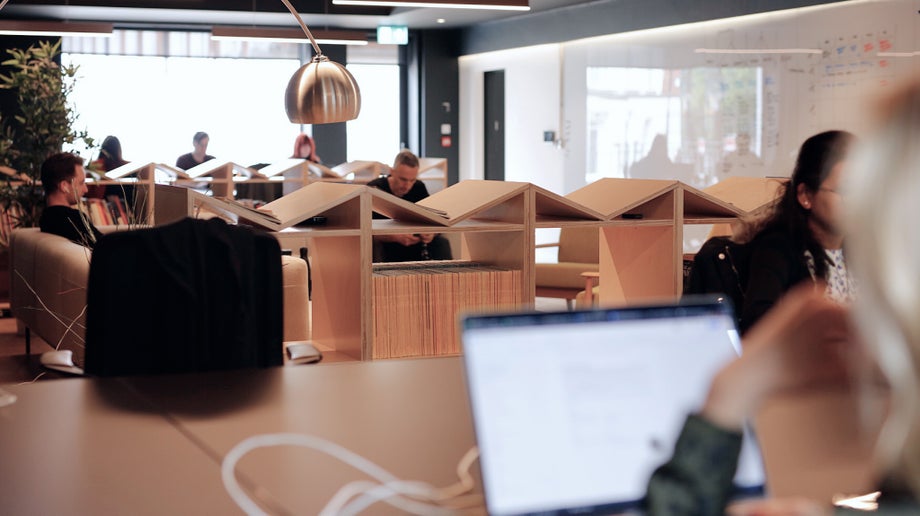

01.09.202210 mins read
Last year, retail global eCommerce sales amounted to approximately $4.9 trillion, a figure expected to grow by 50% over the next 4 years, reaching about $7.4 trillion by 2025. These numbers are hard to ignore and make having a solid and robust digital strategy imperative for business success.
However, expanding your business model to encompass all the various digital channels isn’t always clear-cut. There is a whole array of issues. Consumers want the best of both worlds. They still value the in-person experience while also wanting to read reviews, make payments, or book places on their mobiles. Increasingly it is also about delivering a consistent omnichannel experience which is often a huge roadblock for large traditional brands with a labyrinth of business avenues and models.
Navigating this terrain is challenging, and relying on in-house teams to design, create, develop, implement and monitor a digital strategy is asking a lot. However, that’s why there are digital agencies. We are here to provide the expertise, skills, and knowledge to guide brands on this journey.

We often discover early on that most brands do not properly understand the scope and complexities involved with implementing a digital strategy. It can be a case of them having completed no research on the subject or working from old inaccurate data. Sometimes they are under pressure because leadership hasn’t seen the expected ROI on its investment in digital and is now querying decisions and looking for results and outcomes fast.
However, agencies like All human are proficient and seasoned digital transformers. We know the pitfalls and the areas that are often overlooked. All human takes it a step further with a laser focus on creating digital experiences that are informed and shaped by human behaviours. We conduct extensive research, continuously assessing and analysing how people behave online to validate our decisions and drive growth. It isn’t enough to simply move online; the experience there must be one that engages and satisfies and ultimately drives an action- whether that is booking a ticket, placing an order, or signing up for a subscription.
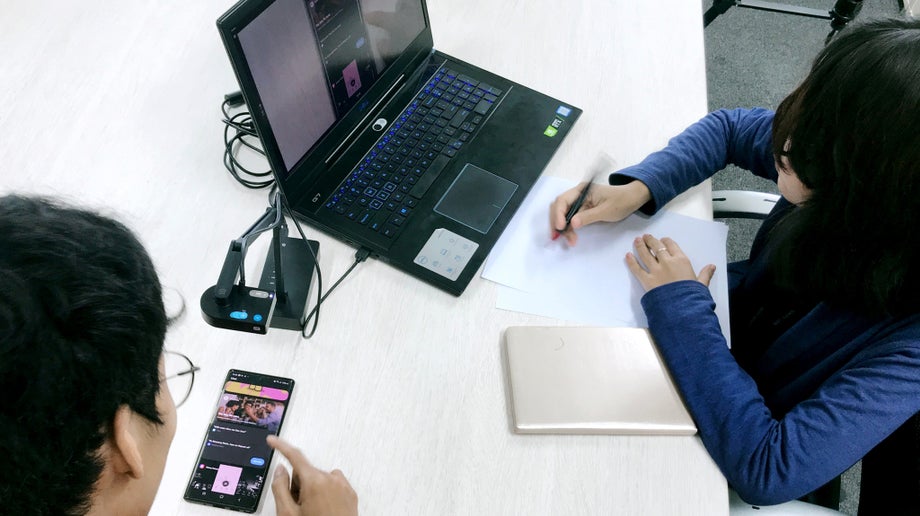
To kick start a project, we undertake a discovery phase to understand the customer and find business opportunities. We delve deep into exploring the needs and motivations of customers, figuring out what they want to do and what is preventing them from doing it. This insight is fundamental for designing and building your digital product or service.
We constantly monitor and tweak our products again using insight and analysis from customer behaviour. My colleague Sarah Lachapelle explains in detail how we implement this in Why conversion rate optimisation (CRO) is critical for digital channel growth. As she says, “The rigour of our process strips out the guesswork. Our design decisions are never based on assumptions. Instead, we have created new digital growth and revenues for clients by putting the user at the core of our thinking and validating our ideas through experimentation and iteration.”
One of the biggest challenges with implementing a digital strategy is having the necessary skills. Some essentials include data analytics, software development, UX and UI designers, developers, and cyber security professionals, to name but a few. Very few organisations have such a wealth of talent on hand; if they do, they are in high demand internally. Obviously, you can hire these professionals. However, 46% or almost half of Irish employers reported difficulty recruiting for the following roles: IT Software developers, UX designers, mobile/web developers, IT engineers, e.g., DevOps security test virtualization), designers architects- cloud, IT, solutions, data analysts/scientists, and technical support staff. In other words, finding the people necessary to develop and implement a digital strategy presents a problem.
Digital agencies have this talent already. People who are skilled in the art of listening to a brief, working out what is needed, and then meeting with clients to ensure that what is delivered meets or exceeds expectations. Agencies also bring project managers, business analysts, and creatives to each assignment- again guaranteeing that when you undertake this large and incredibly significant project, you have the best people on your side.

The very nature of agency work promotes agility and outside-the-box thinking. Typically each person is working on different projects - getting exposure to various industries and audiences. This feeds into each person's knowledge and internal library, providing depth and insight into what works. Yes, one project may focus on the insurance industry while another on booking a holiday. However, we bring the learning from each sector's ideas and trends to every project in a way impossible for an internal team.
I think the other consequence of this diversity of experience is innovation. We've had multiple scenarios where a client comes with their ideas or roadmap, and when we review, we suggest changes and additions that significantly improve the plan. From developing apps to building cutting-edge customer experiences, the team at All human is constantly looking for new ways to approach old ideas and processes.
As part of a larger digital project for An Post, Ireland's state-owned provider of postal services, All human ideated, designed, and built a suite of rich consumer transformative digital products such as Click & Post, Shop, and Delivery Manager.
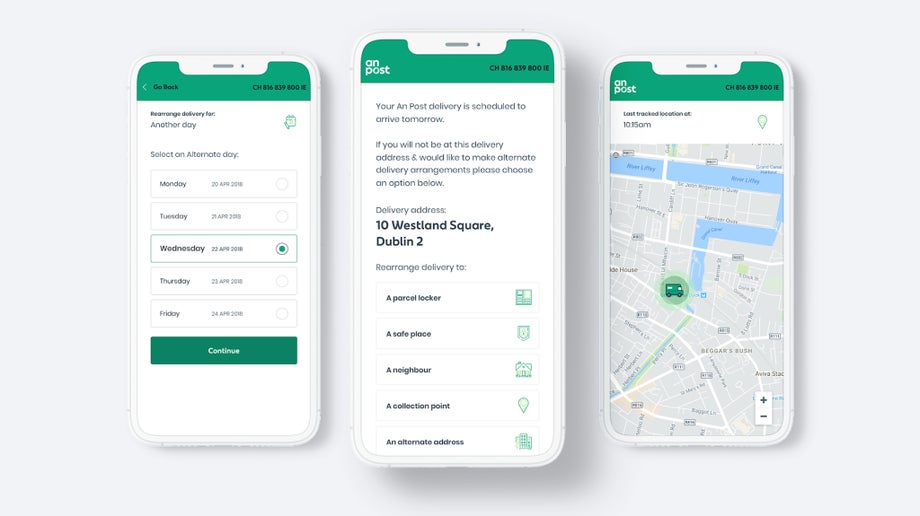
In tandem with having the necessary tech skills is having the right tools. One of our projects with Irish Rail, Ireland’s national railway network operator, saw us delivering a content management system (CMS) swap-out project. The first task of our new contract was to migrate their existing site to Kentico as their new CMS. Our developers also took this opportunity to deploy using the latest Kentico practices and went for a full model-view-controller (MVC) deployment. This gave much of the control of changes and updates to content back to Irish Rail so that when they make any changes to the content, they can do so without needing an engineer.
When conducting our extensive research, we use various tools such as Google Suite, Google Analytics (GA4), and Tag Manager. For behavioural analyses, we utilise Hotjar, and to conduct our experiments, we use Google Optimise. We are Google Marketing platform certified - one of the few in Ireland with such a distinction. Such a plethora of tools at our fingertips gives us an incredible way to gather, collate and mine the data collected to generate invaluable insight into consumers. Our experience and knowledge of these applications further add to their overall usage and give brands the digital product or service that will meet their business goals.
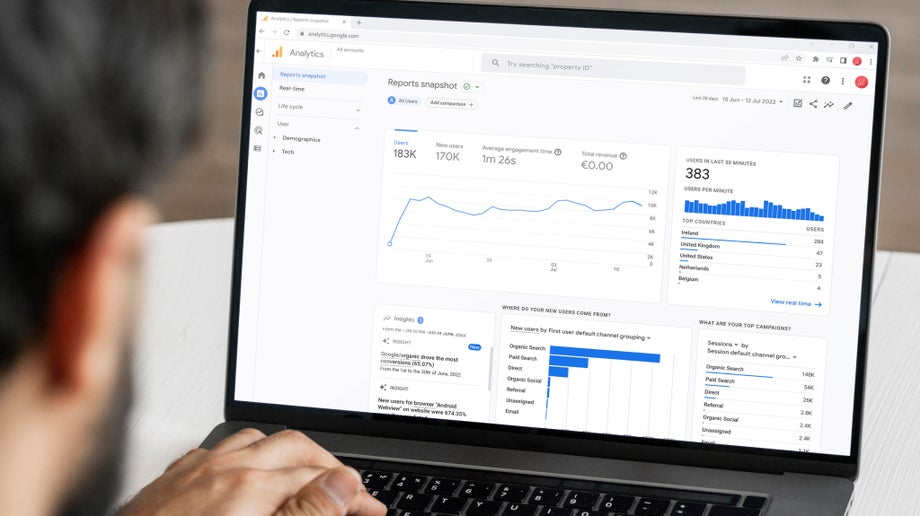
In addition to a long list of engineers and developers, agencies will have subject matter experts who bring the latest in thought-leadership to their speciality. Here at All human, we are huge supporters of making the web accessible to all. All our designers must complete accessibility training, and our engineers are assigned accessibility training as part of their KPIs. We are also starting to develop a comprehensive accessibility course in-house that will incorporate the multiple aspects of web accessibility. The plan is that everyone across the agency will need to complete this course as part of their ongoing professional development. We also have staff members who are accessibility champions. All of our clients now benefit from this expertise. For some, it means they comply with the European Union (EU) ruling that all member states must ensure that public sector bodies' websites and mobile applications (apps) are fully accessible to persons with disabilities.
Our team has several highly skilled user experience (UX) designers. Why is this important? Ultimately a test of any digital product will be the end experience each person has with the product. Its design is critical and can make or break a product or service. UX is a very nuanced field, and having the correct input and feedback to ensure a design that is both appealing and invites visitors to take the desired action is difficult. Again, few internal teams will have this level of expertise or experience.
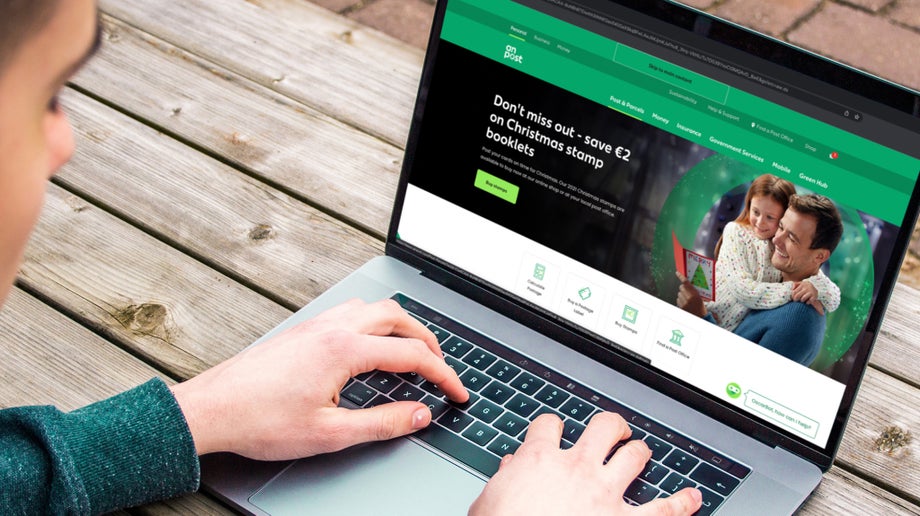
The end goal of brands is to grow and expand digital channels. However, you are also (hopefully) growing and expanding as an organisation. As you evolve, you want a partner who can match your speed and has the agility and flexibility to increase output as required. If your internal teams struggle to match the pace, the repercussions can be significant if you fall behind. Customers can be fickle, and a failure to meet their expectations online can send them to a competitor. Partnering with an agency removes this issue. Agencies have the resources and can, as the project increases in scope, bring in the required skillsets to ensure that you continuously monitor and deliver an engaging digital experience.
As I mentioned previously, CRO is essential to any digital strategy. It's about increasing the percentage of people who complete the desired action when they visit your site. The CRO process never ends. We have an entire team of people dedicated to improving digital performance. As a result, new ideas are constantly generated based on ongoing research and observation, creating a dynamic backlog of ideas. This allows us to evolve digital products over time and simultaneously inform innovative improvements for the long-term product roadmap.
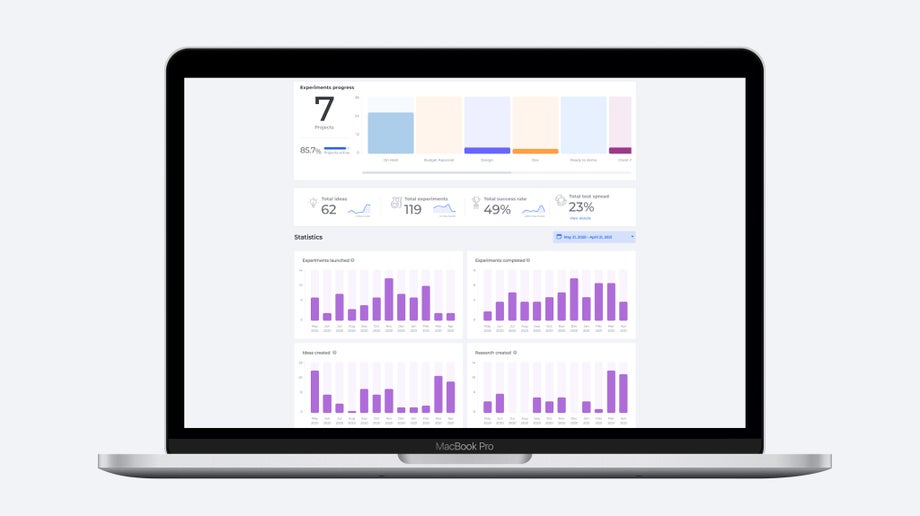
Our Digital Performance team has a proven track record. One of our clients, Fáilte Ireland, Ireland's national tourism agency, experienced a 435% increase in referral conversion rate from articles and an increase in referrals sitewide by 38% year on year on its site DiscoverIreland.ie. They also enjoyed an increase in overall user engagement with 191% more mobile sessions and a 254% increase in repeat visitors compared to 2020.
We repeatedly hear from our clients that one of the best things about working with us is our people. We have longstanding relationships with many of our clients and are a cornerstone of their digital transformation journey. At the heart of these relationships is a highly collaborative team of people who lean into each other’s talents, skills, and perspectives to create experiences that excite, engage, and, most of all, work.


